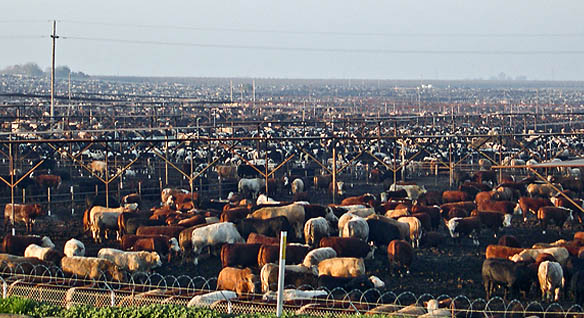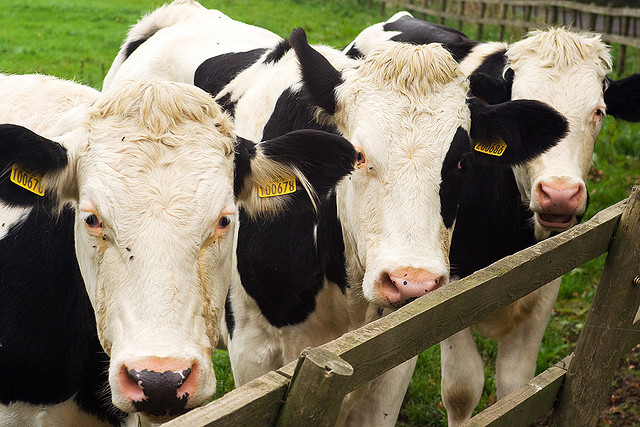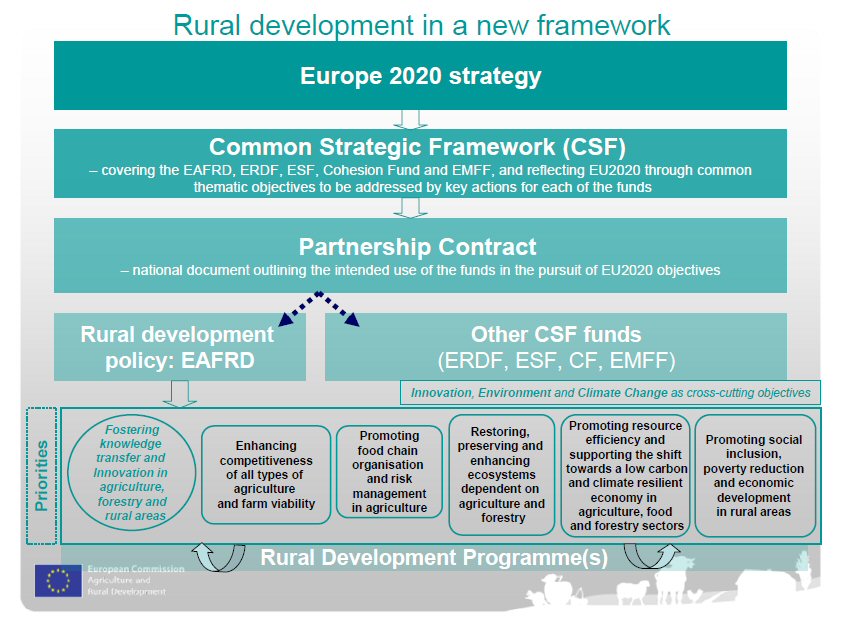I wrote a post last January on the agricultural implications of a British withdrawal from the EU (Brexit) for agriculture in the rest of the EU. Following submission of evidence to an Irish Parliamentary Committee on the implications of Brexit specifically for the Irish agri-food sector, I have developed the possible scenarios into a longer paper which can be downloaded here.
Although the discussion concentrates on the potential impact on the Irish agri-food sector, the early part of the paper discusses the possible alternative trade arrangements between the UK and the rest of the EU following a potential Brexit which might be of wider interest.… Read the rest
Two steps forward, one step back: coupled payments in the CAP
One of the success stories in the evolution of CAP reform has been the change from supporting the product to supporting the producer by moving, first, from market price support to coupled payments, and then by decoupling these payments.
The 2013 CAP reform has reversed this process. Coupled aids have started to grow again, from a projected €2.7 billion in 2014 to a projected €4.8 billion in 2015, an increase of nearly 75%. Their share of total direct payments will rise from 6.7% in 2014 to 11.6% in 2015. This step backwards was one of the negative outcomes of the recent CAP reform.… Read the rest
TTIP and the potential for US beef imports
Beef is generally considered to be a sensitive sector in the EU-US negotiations on a possible Transatlantic Trade and Investment Partnership (TTIP) agreement. Currently, imports of beef from the US are limited by high tariffs and by the refusal of the EU to allow the import of beef produced with the aid of pharmaceutical technologies such as hormones and beta-agonists (a class of non-hormonal compounds that act to increase feed efficiency).
Nonetheless, EU imports of non-hormone-treated beef from the US have been increasing in recent years. Different views have been expressed about the likely consequences for the EU beef market if market access were further liberalised under a TTIP agreement.… Read the rest
Forum for the Future of Agriculture 2015 – Remarks on EU agricultural trade policy
The 8th Forum for the Future of Agriculture (FFA2015) was held yesterday in Brussels. This annual meeting, organised jointly by the European Landowners’ Association and Syngenta, attracts around 1400 participants and has established itself as one of the principal fora for debate on the future of agricultural policy. What makes the event interesting is that it attracts a good number of participants from among farmers and the agri-business sector while also being open to environmental NGOs and others critical of current agricultural practices.
The theme for yesterday’s meeting was the UN Sustainable Development Goals and possible implications for EU agriculture, with contributions from both Commissioners Hogan (Agriculture) and Vella (Environment, Maritime Affairs and Fisheries).… Read the rest
Farmers' share of food chain value added
In response to a question recently in the European Parliament from Mairéad McGuiness MEP, one of the Parliament’s Vice Presidents and a member of COMAGRI, the Commission presented updated figures on the distribution of the value added in the food chain between the various actors. Mairéad McGuinness had asked if the Commission could provide details on the average share/percentage of the final price that farmers receive for their produce, relative to the share/percentage received by other actors in the food supply chain?
The Commission had previously presented figures for the distribution of value added in the food chain between the years 1995 and 2005 in a staff working paper accompanying its communication A better functioning food supply chain in Europe in 2009.… Read the rest
The Energy Union package and agriculture
Last Wednesday 25th February the Commission launched its long-awaited Energy Union package comprising three Communications. The first proposes A Framework Strategy for a Resilient Energy Union with a Forward-Looking Climate Change Policy with an accompanying roadmap setting out a projected schedule for the implementing legislation. This document sets out priorities for energy and climate policy, with a particular focus on achieving an integrated energy market, ensuring security of supply including through diversification, improving infrastructure and interconnection, improving energy efficiency, and speeding up decarbonisation in order to meet the EU’s climate goals. In total, it sets out 15 action areas to be addressed in implementing these objectives.… Read the rest
The UK milk ‘crisis’ – fact or fiction?
Reading the UK press over the past few weeks it appears that the UK dairy industry is on its last legs and that UK dairying will soon become an extinct species. The Daily Mail reports that “campaigners warned it was the worst crisis the industry has ever seen”. At the other end of the political spectrum, the Guardian headlines its story “No whey forward – future of Britain’s dairy industry hangs in the balance” and goes on to claim “Years of falling milk prices could spell an end to the fresh, safely produced dairy products we take for granted.”
According to Rob Harrison, the chairman of the NFU’s dairy board, in The Telegraph: “Being a dairy farmer at the moment is like being a boxer – on the ropes and taking body blow after body blow.… Read the rest
Why the poor EU response to higher grain prices?
Since 2007/08, the world has lived with substantially higher, if fluctuating, prices for grains following the global food price spike that began in 2007. Economists would predict that higher prices would lead to a global supply response. Indeed, global cereals production has increased by over 500 million tonnes in 2013 compared to 2006 production of just over 2 billion tonnes (FAOSTAT statistics are used throughout this post, and cereals production is measured inclusive of the volume of milled rice). This corresponds to an increase of 25% over this period, or a compound annual growth rate of 3.3% per annum which is impressive.… Read the rest
Commitments to rural development spending 76% below forecast in 2014
The publication by the Commission of its second Draft Amending Budget (DAB No.2) to the EU’s 2015 budget this week reveals in stark figures the extent of the hiatus in CAP rural development spending caused by the delays in passing the relevant legislation and in approving rural development programmes. I first highlighted how approval of rural development programmes was falling way behind schedule in this post; the Commission’s budget figures now allow us to quantify the extent of the damage.
The delays do not affect only rural development programmes but all programmes under the European Structural and Investment Funds, the Asylum, Migration and Integration Fund and the Internal Security Fund.… Read the rest
Agricultural implications of British EU withdrawal for rest of the EU
This Sunday, the Greek general election may decide if Greece will leave the Eurozone, sometimes referred to as Grexit. None of the likely winners of the election, including Syriza, want this, but if there is an unwillingness to address the restructuring of Greek debt, particularly given Syriza’s promises to dramatically increase public spending, this could be the outcome. Whether Greece would then remain a member of the EU if this were to happen is uncertain, with The Economist arguing this week that, in all likelihood, Greece would have to leave the EU as well.
Later this year, on 7 May, the British general election takes place.… Read the rest





